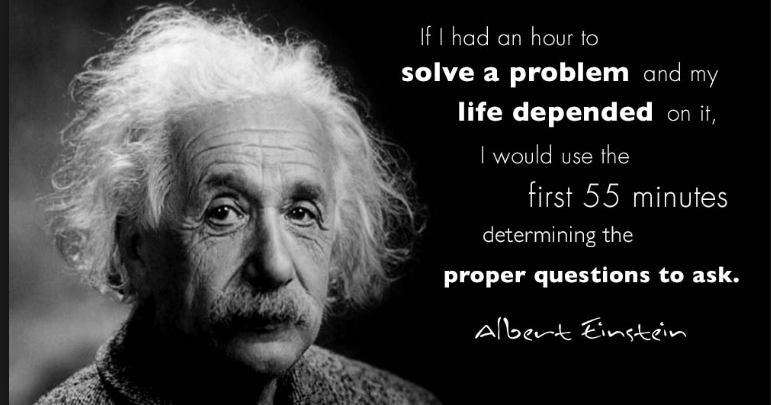Re-visit: Questions? (Re-write)
- andrew06163
- Feb 10, 2023
- 3 min read
In this new series, I again present the blog article written last week, in order to 1) show the curious how re-writing a post can improve the content while reducing the time to read it; and 2) help those who read the first to remember more. Here goes!
Get a G.R.I.P.’s, chapter 18, "Questions?" remains one of my favorites, and not just because of the song that goes along with it, "Q & A." Why do I like Chapter 18 so much? Is it because I am a "natural interrogator" as described in James Redfield's Celestine Prophecy? (In his somewhat-controversial 1993 novel/parable, Redfield talks about "4 Dramas: 1) the Intimidator, 2) the Interrogator, 3) the Aloof, and 4) Poor Me. Of the four, I definitely can slip into the interrogator mode most easily. Check out the book or read a description in Wikipedia of the 4 dramas if you want to know where you "fall.")
Maybe that's it. I have always been curious, and usually my curiosity has served me well, except on rare occasions where I almost became the cat that curiosity killed.
Why re-visit "Questions?" Because there's more to explore than what you've (hopefully) read in Get a G.R.I.P. I used the chapter to introduce the very powerful practice of "Appreciative Inquiry.” Here, I'd like to dive briefly and yet deeply into a different, more of a meta-question, namely: “What is a question?”
First, if you're reading/skimming fast, would you go back and read the question again? Now, note your own answer to that question. Is it, "What do you mean, Andrew? Everyone knows what a question is!" Or is it, "Hmm...isn't it just what we do when seeking an answer or clarification?" Or...."It's one of the 5 Ws and 1 H–Who, What, When Where, Why, How"? All of these are legitimate answers, as is any different answer you came up with.
When I ask myself, "What is a Question?" I immediately follow with another question, "What is a question's purpose?" And I find many possible purposes, and not all of them are positive attempts at finding good answers. Some questions are used to interrogate, some to intimidate, some to avoid confrontation (e.g., "Why are you asking me?"), some to show off what the questioner already knows. I'm sure you can come up with a few more purposes for any given question.
What do you do with questions people ask you? In e-mail exchanges, sometimes people simply ignore questions, and that can raise tensions. Sometimes we ignore (or just fail to remember) them because the questions are buried in other text, and it can be hard to decipher whether the questioner is really looking for an answer. In synchronous communication (as opposed to e-mail's asynchronous nature), we can show whether or not we really want an answer. We make eye contact, pause, and, if we're polite, we listen to our counterpart's answer, then use clarifying questions to determine, rather than guess at and imbue, motives, reasons, that are often incorrect. Instead, what often happens between two people, especially if in conflict, is what Sam Harris says is happening on a wide scale in social media: One person will attempt to force the other to defend the least charitable interpretation of what they have said, written, or asked.
That's one of the areas I wanted to explore: "What is a question?" The second I discovered while listening to a presenter. I don't remember who he was, but I will always remember the effect. He started by asking a couple of simple questions, like, "What is your name?" "Where were you born?" and so on. The presenter revealed to us, simply asking questions, this astonishing fact (at least astonishing to me): Everyone (including me) was automatically answering the questions he asked. He claimed that we human beings are "answering machines," that we are conditioned to answer every question put to us. I can't control your answer, but by asking a question, I am controlling what you are thinking about. If I ask, "What's your favorite food?" you may say (or think), "Cheese enchiladas," or "pad thai" or "sushi," or even, "I don't have a favorite food." But there's no way, save for deliberately ignoring me, that you can avoid thinking about what might be your favorite food.
What does all this mean? To me, it means, just as Chapter 18 recommended, using a specific set of "appreciative" questions (e.g., "What's working well?") rather than attempting to "solve problems," and there’s an even bigger question: What are the best questions you can ask, of yourself and of others, in order to help you and your organization get to where you want to go?






Comments